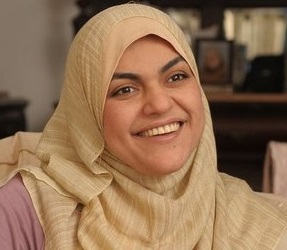CAIRO: President Hosni Mubarak’s departure from office, “whenever and however it occurs, will be extremely significant and the West needs to start thinking about who will come next and “how we will work with him, American political analyst Michele Dunne wrote in an article.
In the September/October issue of The American Interest, a political journal which is favored by the US foreign policy community, Dunne, a senior associate at the Carnegie Endowment for International Peace, published a long analytical piece on the future of the US-Egypt political relationship after Mubarak leaves office.
The author, an Arabic speaker who has appeared on the Al-Jazeera talk show “From Washington and has extensive experience in Egypt as a student, researcher and diplomat, argues that given the country’s strategic importance, the question of who would succeed Mubarak should be thoroughly discussed.
Entitled “A Post-Pharonic Egypt? the article considers Gamal Mubarak the most likely candidate to become the next president. The author notes that many Egyptians reject the principle of filial succession, in addition to Gamal’s lack of military experience.
But “the amended constitution, which clearly lays out succession procedures, makes him the most obvious candidate, Dunne explains. When Mubarak leaves office, a presidential election must be held within 60 days.
Each eligible party can nominate a candidate, but such a candidate must have held a senior leadership position for one year. From within the NDP, only Gamal Mubarak and party Secretary-General Safwat El-Sherif, who is considered a long-shot, are eligible.
However, all of Egypt’s post-1952 presidents have been from the military, which enjoys enormous prestige and power, which leads many analysts to believe that someone from inside the Military or Security Forces would be the next president. The name that often comes up in discussions is General Omar Suleiman, director of intelligence.
According to Dunne, the amended constitution will make it difficult for any of the Generals to get on the ballot. “Unless the constitution is set aside altogether, it is impossible for the NDP to suddenly import Suleiman or a general to head its presidential ticket.
“This is no accident, says Dunne as “Gamal and his supporters in the [National Democratic Party] set it up carefully over the past few years and have tried to close as many loopholes as possible, for example specifying that any official temporarily serving as president in case of Mubarak’s incapacitation may not propose amendments to the constitution.
On the other hand, Dunne argues, it is possible that Gamal Mubarak might be a figurehead president, and Suleiman or someone from the security apparatus might be the real ruler of Egypt from behind the scenes.
“What should the United States do? asks Dunne, who served as a diplomat at the US Embassy in Cairo from 2000 to 2002.
Neither Gamal Mubarak nor someone from the Security Forces seems consistent with the stated goal of democracy promotion. It’s a choice between supporting “a hereditary succession with only the thinnest veneer of electoral legitimacy or “an extra-constitutional process that brings a military man to power, neither of which “fits well with the declared US intention to promote democratization in the Middle East.
But given resentment at perceived American hegemony over Egypt, Dunne writes that “the only sensible US option is to stay on the sidelines “at least as long as there is no danger of a strongly anti-American successor coming to power.
She does offer two suggestions for the next US administration. The first would be “to encourage the next president to adopt a two-term limit, which might end the stagnation that the “pharaonic, president-for-life system encourages. Secondly, the US should encourage the redefinition of the security apparatus, whose omnipresence has created an apathetic society that is largely devoid of political competition, which explains why there are so few serious presidential candidates.
“The United States should urge Mubarak’s successor to make a decisive break with the past, and to redefine the role of internal security forces as one confined to genuinely protecting the state and the people from terrorism and other violence.
The opposition newspaper Al-Dostor translated and printed the story in full in its Sept. 3 issue.


